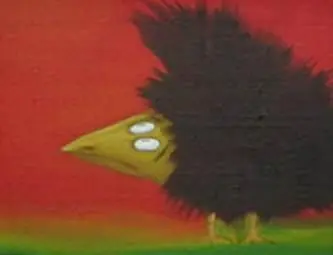Laura Furman - The O Henry Prize Stories 2005
Здесь есть возможность читать онлайн «Laura Furman - The O Henry Prize Stories 2005» весь текст электронной книги совершенно бесплатно (целиком полную версию без сокращений). В некоторых случаях можно слушать аудио, скачать через торрент в формате fb2 и присутствует краткое содержание. Жанр: Современная проза, на английском языке. Описание произведения, (предисловие) а так же отзывы посетителей доступны на портале библиотеки ЛибКат.
- Название:The O Henry Prize Stories 2005
- Автор:
- Жанр:
- Год:неизвестен
- ISBN:нет данных
- Рейтинг книги:5 / 5. Голосов: 1
-
Избранное:Добавить в избранное
- Отзывы:
-
Ваша оценка:
The O Henry Prize Stories 2005: краткое содержание, описание и аннотация
Предлагаем к чтению аннотацию, описание, краткое содержание или предисловие (зависит от того, что написал сам автор книги «The O Henry Prize Stories 2005»). Если вы не нашли необходимую информацию о книге — напишите в комментариях, мы постараемся отыскать её.
I will abstain. If you're interested in The O. Henry Prize Stories 2005 at all, you're already an adherent of short prose, and know that it's alive and flourishing (as long as you can track it down on the smaller and smaller presses to which it's often relegated).
If the short story's cachet has evinced some decline over the course of the past century, it's a decline in public exposure and lucrative potential, not in quality. In terms of sales and public profile, the short story collection can't keep apace with the novel or pop nonfiction, but it's still absolutely kicking poetry's ass on all fronts, and, like poetry, remains in general more adventurous, fluid, and vitally modern than its novelistic big brother.
To review these stories in terms of their quality seems redundant – that they're terrific is a no-brainer. Entering its eighty-fifth year, The O. Henry Prize Stories consistently collects – I won't say the finest short fiction, but it collects inarguably exquisite short fiction published in the U.S. and Canada. We'll concede that there may be better stories out there, simmering under the radar or even (gasp!) unpublished, which does nothing to detract from the eminence of the ones collected here. This is a damn good read.
This year's edition was edited and introduced by Laura Furman, with a jury consisting of celebrated writers Cristina Garcia, Ann Patchett and Richard Russo. It's dedicated to Chekov upon the centenary of his death, which is forgivably predictable, given his pervasive influence on the short form. Besides illuminating notes from the writers on their work, the 2005 edition contains an essay by each of the judges on their favorite story, and a glossary of literary journals big and small that will be a valuable resource for writers and readers alike.
If quality is a given, it seems the best utility a review of the The O. Henry Prize Stories can have is to pick out the affinities between them and see (a) what writers were compelled to write about in the past year, (b) what editors were compelled to publish, and (c) which literary organs are currently in vogue. Word to the wise: If you'd like to win an O. Henry Prize, relentlessly submit to the New Yorker, which originally published no less than six of the twenty stories here, comfortably vanquishing silver-medallists The Kenyon Review and Zoetrope, who clock in with an admirable (if measly by comparison) two stories apiece.
No less than four stories in the volume revolve around music, all of which are deeply appreciative, none entirely trusting. Michael Palmer's atmospheric tale, "The Golden Era of Heartbreak", is haunted by a lovelorn trucker's song that carries everywhere in a town flattened by the departure of the narrator's wife. "My house filled to the eaves with this song," he states in his spare, lyrical tone, and the story is filled with it as well: The prose, like the town, is "flat as an envelope," and the trucker's song stretches spectrally across it.
A personal favorite of mine, Ben Fountain's "Fantasy for Eleven Fingers", is an elliptical, richly detailed character sketch in the vein of Millhauser or Hemon, about the intertwined destinies of two eleven-fingered pianists in nineteenth century Vienna, steeped in all the paranoia, political and ethnic tensions, and obsolete superstitions of the day.
In Timothy Crouse's "Sphinxes", a remarkably confident and unclassifiable tale, piano lessons, love affairs and subtle emotional maneuvering are braided together with increasing complexity until they become indistinguishable. In each of these stories, music is salvation and undoing, pure force and calculated metaphor: a paradox, a chimera, a sphinx.
And Gail Jones's "Desolation" is about a primal, alienating sexual encounter at a Death in Vegas concert, although it cross-references with the second type of story that heavily informs this year's volume, the community / exile story, which we're coming to just now.
Many stories in The O. Henry Prize Stories 2005 revolve around issues of community, but not the traditional, fixed community – these stories are about the provisional communities that arise in times of crisis, and the communities forged by travelers, strangers, souls in spiritual and physical exile.
Judge favorite "Mudlavia", a coming of age tale by Elizabeth Stuckey-French, finds a young boy and his mother in a health resort filled with questionable, exciting characters of colorful mien and shady provenance – slowly, away from their domineering father and husband, we watch them come alive to their own desires, desires that this alien context was necessary to draw out.
Another judge favorite, Ruth Prawer Jhabvala's period piece "Exile in London", evokes the faded aura of postwar London by way of the young narrator's recollections of the ragged diaspora in her aunt's boarding house. And Nell Freudenberger's "The Tutor" details the tensions, both sexual and cultural, between a prototypically American teenager in Bombay and her native Indian tutor.
But the finest story in The O. Henry Prize Stories 2005 has to be Sherman Alexie's "What You Pawn I Will Redeem", which describes the plight of a homeless, admittedly "crazy" Spokane Native American as he embarks on a day-long quest to raise one-thousand dollars to buy back his Grandmother's tribal regalia from a pawn shop. That the story's themes are large and poignant is obvious; what's remarkable is that it manages funny, hopeful, angry, and redemptive at once. The narrator's refusal to lapse into self-pity or misanthropy at his pathetic plight is counterintuitive yet rings true, and by the time the story reaches its conclusion, not-at-all inevitable and uncommonly generous of spirit, one feels every inch of his joy.
In the end, this is the short-story function that trumps all the others: The ability to vault the reader into realms of unanticipated joy. While not all the stories in The O. Henry Prize Stories 2005 achieve this as viscerally as Alexie's fable, each one loudly debunks any nonsense about the short story's obsolescence.














